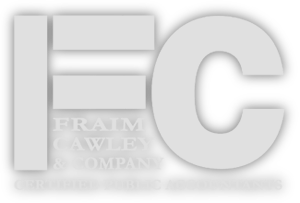“How can I go forward when I
Don’t know
Which way I’m facing?
How can I go forward when I
Don’t know which way to turn?
How can I go forward into
Something I’m not sure of?
Oh no, oh no.”
“How?” – John Lennon
Last year I wrote an article outlining the differences among C-Corp, single member LLC, and S-Corp tax elections. It showcased the benefits and disadvantages of each and showed some examples of how people had chosen incorrectly.
And yes, it can be rather confusing (echoing John Lennon’s lyrics above) when you’re trying to figure it out (and especially all by yourself.)
I will not rehash the entire topic here. (Please note however that the article can be accessed via the link above if you would like to review it.) I bring this up because are now hitting against a very important deadline: the deadline to elect S-Corp status for the 2014 tax year. For existing LLCs or corporations that have not previously elected S-Corp status that date is March 15. Why is this so important? As I outlined in the previous article, electing S-Corp status can have a very real tax benefit – if it fits your situation.
What was the benefit again? For self-employed persons or LLCs taxed as partnerships or self-employment income, the entirety of the profit is subject to 15.3% self-employment tax – regardless of how the earnings are paid out. For S-Corps on the other hand, earnings in excess of the shareholder’s salary are not subject to self-employment tax.
For easy numbers let’s say a company earned $100,000 in profit. To borrow from the previous article, let’s “assume that this person met the IRS qualifications for an S-Corp (and that they truly were an employee of the corporation and not using it to shield income), a reasonable salary for the profession/industry/area was determined to be $50,000, but the company made an additional $50,000 in profit.”
In this example, this would be the self-employment tax paid:
|
|
Income Subject to SE Tax |
SE Rate |
SE Tax Due |
| LLC |
$100,000 |
15.30% |
$15,300 |
| S-Corp |
$50,000 |
15.30% |
$7,650 |
That is a savings of $7,650 in taxes paid! That being said (and as I outlined before), S-Corps have additional costs and hassles associated with them. They are not for everyone and will actually cost you time and money if done incorrectly.
With the IRS deadline looming, contact me so we can discuss your situation and see if an S-Corp election is the right choice for your business.
IRS Circular 230 Notice: To ensure compliance with requirements imposed by the IRS, we inform you that any federal tax advice contained in this communication (including any attachments) is not intended or written to be used, and cannot be used, for the purpose of avoiding penalties under the Internal Revenue Code.




